
Hi, I’m a personal finance expert who loves to help you out! I’ll answer your question within a business day. Pinky swear.


The short answer is yes, you can pay rent with some credit cards. But is it worth it? Sometimes the fees or third-party charges can negate any benefits of paying by credit. Let’s take a deeper look at what services allow rental payments, the charges involved and the pros and cons.
When renting in Australia, you probably won’t be able to pay rent directly to your landlord unless they have a credit card processor. Even then, you’ll likely pay a credit card transaction fee, although you might also earn rewards. Are the points worth it? Let’s first look at the payment options available.

Qantas Rental Rewards
| Example
Let’s say you have a credit card that earns 1 Qantas Point per $1. If you pay $2800 a month in rent, you’d earn 33,600 Qantas Points, plus 2000 bonus points (1000 for signing up and 1000 after 12 payments). That’s 33,800 points over 12 months. To give you an idea of value, for around 38,000 points you could fly Sydney to Bali return. That’s about $850 in cash value. Rental Rewards comes with its own fees, which we’ve outlined below – so make sure you’re getting the value out of your points and using the Rental Rewards service. |
DEFT
Created by Macquarie Bank, DEFT allows users to make one-off and recurring payments using their credit card, as long as the recipient is registered as a DEFT biller. Some things worth noting include:- To make recurring payments, you must sign up for a DEFT account. There are no membership fees involved.
- The biller determines what types of cards it accepts, so you may not always be able to pay with your chosen credit card.
- The fee you pay will vary according to the type of card you pay with, and the biller’s preferences. The maximum cost of paying with a credit card is set at 1.5% for Mastercard and Visa, 3.3% for American Express, and 3.773% for Diners Club.
| Example Let’s say you have a Qantas Premier Platinum Credit Card, which allows you to earn 1 Qantas Point per $1, capped at $10,000 per statement period. Your $20,800 yearly rental costs would provide you with 20,800 Qantas Points, at a cost of $312. Flying Qantas Economy mid-week in August, you could fly Melbourne to Christchurch for 22,600 Qantas Points plus $159 in fees. Paying cash only, this flight would cost $347. Alternatively, you could redeem 20,860 Qantas Points in the Qantas Store on a Breville The Original 74 Jaffle Maker, RRP $119.95. |
Rental Rewards
If you've heard of Scott Pape, the Barefoot Investor, you might have heard that he tore Rental Rewards a new one over their third-party processing of rental payments that earn rewards. As you might expect, this service comes with a fee, which is what Pape wanted to bring to the attention of his followers. In his post on the subject, he cited evidence from a reader saying she had paid $78 a year in fees, but pointed out that some credit card options work out to be an extra $312 a year. Rental Rewards hit back at Pape’s claims, describing “certain statements” in Pape’s column as “incorrect, misleading and deceptive”, and threatening to sue both Pape and News Corp. But, while the idea of paying for a service doesn’t have to be an issue – as long as cardholders are aware of what they’re paying – what may cause problems is the fact that some rental agents seem to not be providing renters with an alternative way to pay that doesn’t involve coughing up fees. Under Fair Trading rules, rental agents are supposed to provide reasonable no-fee alternatives to their fee-based payment options, such as Rental Rewards. However, there are those who claim that there are some rental agents who are stretching what could be termed ‘reasonable’, by providing alternatives that are simply not practical. “We’ve had examples where people are given the option of paying cash at the realtor, but the property is on the coast and the agency is in Sydney,” Leo Patterson-Ross, the chief executive officer of the Tenants Union of New South Wales, told the Guardian. In terms of cost, this varies depending on how your account is set up, which card you choose to pay with, and whether the payment is one-off or recurring. Looking at direct debit fees, the set-up fee is $1.51, the fee for using Visa or Mastercard is 1.45% of the transaction value, and the fee for using American Express or Diners Club is 2.65% of the transaction value. For members, there is a set-up fee of $1.51 and an ongoing monthly membership fee of $5. Card payment convenience fees come in at 1.1% of the transaction value, on top of a $2 card transaction fee. Premium and corporate card fees have a $10 per transaction fee over $499.99. Card payments over $2,999.99 attract a lower fee of 1.76%.| Example Using your NAB Qantas Rewards Signature Credit Card, you earn 1 Qantas Point per $1 on your $20,800 yearly rental costs. This equates to 20,800 Qantas Points. Let’s say you pay rent weekly. You are a member, so you pay $2 each week on each transaction, plus 1.1% of the transaction. This is an extra $6.40 per week, or $332.80 per year. You also pay $5 per month as a member, at a cost of $60 per year. Overall, that’s $392.80 in fees. |
easyshare
While easyshare is marketed as a service that allows renters in a house-share to more easily manage rent and other bills, it can also be used by renters simply as a way to pay rent using a credit card. There are no membership fees to use easyshare, but you will pay a service fee on your payment, based on the type of card or payment method you use to pay.- To pay via bank transfer or by Visa or Mastercard, there is a 1.5% service fee.
- To pay with American Express, there is a 2.5% service fee.
RentPay
RentPay describes itself as “a secure, portable payments and planning app, just for renters”. As such, it lets you set up recurring payments to cover your rent, ensuring your payments are made on time, with minimal effort on your part. In terms of costs, you will pay a $3 initial set-up fee to cover your ID verification, then a $2 ongoing monthly fee. Using RentPay, you can by direct debit at no additional cost, via BPAY at a cost of $1 per transaction, or by credit card, paying 0.99% using Mastercard or Visa, or 1.55% for PayPal, which includes American Express. There are other payment options available if you don't have a credit card.| Example Using your credit card, your $20,800 annual spend on rent would give you 20,800 Qantas Points. On this spend, you would pay out $260 in service fees to use your card, plus $27 in monthly and set-up fees. Overall, this comes to $287. |
Alternative:
What fees would you pay using an American Express card within each of these examples?- Using DEFT, the 3.3% fee for using Amex would equate to $686.40.
- Using Rental Rewards, the 2.65% fee for using Amex would equate to $551.20.
- Using easyshare, the 2.5% fee for using Amex would equate to $520.
- Using RentPay, the 0.99% fee for using Amex/PayPal would equate to $205.92.
Pros and Cons of Paying Rent with a Credit Card
Time now to look at reasons why you may choose to cover your rental payments with a credit card. ☑ You can earn rewards. If you don’t own your own home, then you have to pay rent. You might as well get something back on all that money you’re throwing at your landlord, right? With a rewards card, you can earn points back on your rental costs, which you can then redeem for rewards you really love. Like a holiday. ☑ You can hit the spend target on a bonus points offer. Instead of using your card to buy stuff you don’t need, you can cover your rent with your card, allowing you to meet the minimum spend criteria on your bonus points offer quicker and easier. ☑ You can build your credit. By paying rent with your credit card, you could build your credit. Using your card regularly – and paying off your balance on time each month – should see your credit score improving over time. It’s worth noting that some third-party processors offer a credit building service, where you pay a fee to have your rental payments reported to the credit reporting agencies. And now, some reasons why paying with card may not be such a good idea. ☒ You are paying out fees. As you can see from the above examples, you will pay fees to pay rent using your credit card. It’s up to you to work out whether the dollar value you get from the points you earn on your rent is higher or lower than the amount you are paying in fees to process the transaction. Be sure to take into account annual fees on your credit card as well. ☒ You’ll reduce your available credit limit. If your credit limit is relatively low, you may not have much left to play with once you have put your rent on your card. Unless you can increase your credit limit, your only other options would be to spend less on your card (limiting your points earn), or to pay off your rent payments after they’ve been processed. ☒ You’ll pay through the nose in interest. If you don’t pay off your balance at the end of the month, you will have to pay interest on the carried-over balance. Not only is this expensive and unnecessary, but it will also further reduce the value of the rewards you earn. And, if you let that debt stack up month after month, you run the risk of getting in over your head. ☒ You could destroy your credit score. If you fail to make your card repayments on time, that will be reported to the credit reporting agencies. Late and missed payments are recorded on your credit report, bringing down your credit score to make it harder to get approved when you apply for more credit in future.Tips!
If you’re set on paying rent with a credit card, there are ways to make it work.
|
The Bilt Card: A Comparison
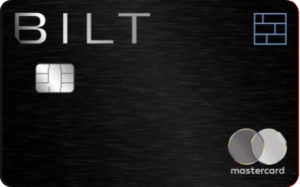 Before we jump into how you can use your credit card to cover your rent here in Australia, let’s take a quick look at how the new Bilt Mastercard works. While it may not be available to us here, it can act as a useful comparison so we can see what we’re not getting as Aussie cardholders and rent payers.
Before we jump into how you can use your credit card to cover your rent here in Australia, let’s take a quick look at how the new Bilt Mastercard works. While it may not be available to us here, it can act as a useful comparison so we can see what we’re not getting as Aussie cardholders and rent payers.
No Fees
Rewards
In terms of rewards earning, cardholders earn points according to their status within the Bilt Rewards program. Rent payments offer two times the points earn of everyday spending. And points redemptions? Cardholders have the option of transferring points to more than 100 airline and hotel programs at a ratio of 1:1, or to redeem points for fitness classes or art and home décor items through the Bilt Collection. Perhaps most appealing of all, cardholders can redeem points for rent credits, or put them towards a deposit on their home when they choose to buy.Credit Building
Another benefit touted by Bilt is that its Mastercard allows cardholders to build their credit with every rent payment. As the company states, rent payments are not typically reported to credit reporting agencies, but with Bilt Mastercard – and its automatic credit reporting – cardholders can benefit from their on-time rent payments, building their credit score to make it easier to apply for a home loan later on down the line.Limiting Debt
Last on the list of pretty cool things the Bilt Mastercard has to offer is the fact that Bilt requires all cardholders to pay off their rent bill each month before charging another month’s rent to the card. This prevents them from diving deeper into debt. Bilt notes that cardholders have the option to draw rent payments from a linked bank account instead, to still earn points on the transaction.| TIP: In case you were wondering about your rights as a renter, here’s what the ACCC had to say on the matter: If a real estate agency or third-party processor “represents to consumers that they must pay a specified rent amount, but fails to adequately disclose that payment processing fees will be charged in addition to this rent amount, this may be misleading or deceptive conduct in breach of the Australian consumer law”. “Further, if a real estate agency or third party payment processor represents to consumers that they will be charged a payment processing fee, when part of this fee represents commission paid to the third party processor, this may also be misleading or deceptive.” |
Photo source: Getty Images

Pauline Hatch
Pauline is a personal finance expert at CreditCard.com.au, with 9 years in money, budgeting and property reporting under her belt. Pauline is passionate about seeing Aussies win by making their money – and their credit cards – work smarter, harder and bigger.
You might be interested in
Recently Asked Questions
Something you need to know about this card? Ask our credit card expert a question.
Ask a question
Hi, I’m a personal finance expert who loves to help you out! I’ll answer your question within a business day. Pinky swear.

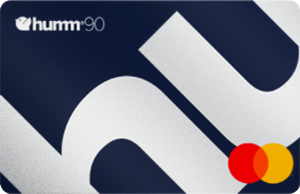




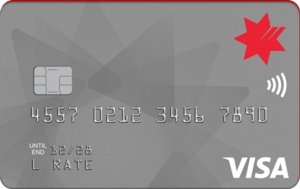
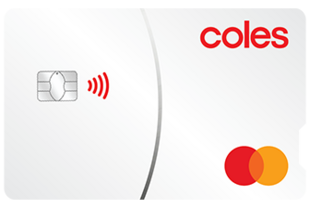
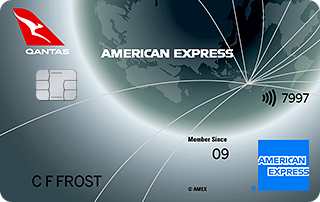
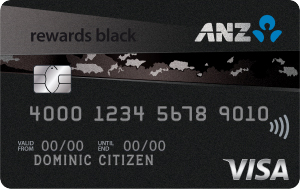
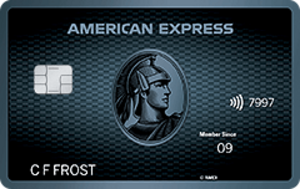







Carlos
18 September 2024Pauline
19 September 2024Pauline
20 September 2024